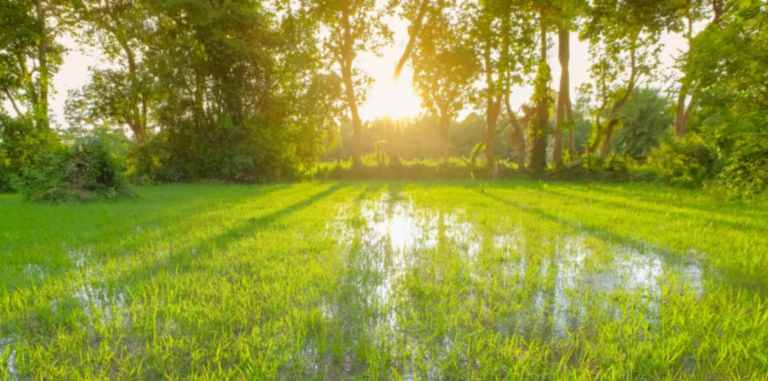Rain is inevitable in the life of a homeowner. Did you know that eight out of 10 incidents to go wrong with a home today have to do with water-related damage? Rain can cause detrimental harm to your home in ways you wouldn’t always think of.
Flooding
When heavy rains fall, the soil becomes oversaturated with water. If the water has nowhere to go, it can seep into your basement through cracks in the concrete wall or even up through the basement floor. This can cause pressure on your foundation, damaging your home’s infrastructure. And if you use your basement for storing precious personal items, you can say goodbye to them when they become waterlogged. Soaking rains can penetrate the electrical wiring and panels, destroying your power and possibly even causing a fire. The moisture can also cause mold growth which is harmful to your health.
Roof Deterioration
One issue that could arise is roof leaks. Gutters are the primary way to collect rainwater from your roof and carry it away from your home. When gutters become clogged with leaves and debris, the water doesn’t drain, starts to pool, and backs up onto the roof. This backup can cause the roof to become heavy with water and lead to roof leaks. It can leak into your attic, but if it is not taken care of quickly, that leak in your attic may become a leak in your ceiling. It may start with a tiny stain or a crack but grow into a bigger problem.
The water may cause the wood on your roof or attic floor to rot, causing structural issues in your home. Wet wood that has sheetrock attached to it will cause damp sheet rock. If the sheetrock remains wet, it will crack and fall apart, leaving you with a hole in your ceiling. Rotten wood and damaged sheetrock will have to be repaired once you take care of the water issue.
Siding and Landscaping
Rain can also cause damage to your home’s siding. Water can get underneath the siding and cause mold and rot if left without repair. And the rain that falls on your siding will continue down the wall and into your landscaping, flooding the beds, washing away mulch and dirt, and causing damage to the plants.
Leafguard® Prevents Water-Related Damage to Your Home
Properly installed gutters will help avoid most of these problems. All gutters carry water away from your home, but only Leafguard does it with a proprietary, debris-shedding design that is better than any other gutter guard on the market today. No other gutter system is designed to provide Leafguard’s level of quality protection, eliminating the problems homeowners worry most about:
- Rotting fascia and soffit
- Damaged foundation
- Basement flooding
- Damaged driveway
- Landscape erosion
- Damaged roof
- Mold and mildew
- Insects and pests
Leafguard’s clog-free design eliminates water damage to your home caused by clogged gutters. Other gutter systems are multi-piece with seams vulnerable to leaks, rust, and sag. Leafguard’s seamless one-piece design has no gaps or seams for water to leak through and won’t pull away or sag, guaranteed*.
We know you want the best protection for your home. So why choose Leafguard? It’s simple:
- Leafguard is the premier product in the market today. Our gutters are 20% stronger than the industry standard.
- Our one-piece design utilizes liquid adhesion’s simple but powerful principle to draw rainwater into the gutter while leaves and all other types of debris roll off. This prevents your gutters from clogging.
- Leafguard gutters are manufactured on-site to the exact specifications to fit your home.
- We back up our limited lifetime guarantee. If you end up having a gutter clog, we will fix it at no charge. And this guarantee is for the product’s life*
Keep your home safe with Leafguard.
*Guaranteed not to clog, or we will clean your gutters for free.


